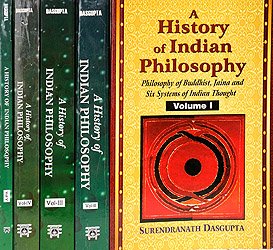A History of Indian Philosophy Volume 1
by Surendranath Dasgupta | 1922 | 212,082 words | ISBN-13: 9788120804081
This page describes the philosophy of buddha (his life): a concept having historical value dating from ancient India. This is the second part in the series called the “buddhist philosophy”, originally composed by Surendranath Dasgupta in the early 20th century.
Part 2 - Buddha: his Life
Gautama the Buddha was born in or about the year 560 B.C. in the Lumbini Grove near the ancient town of Kapilavastu in the now dense terai region of Nepal. His father was Suddhodana, a prince of the Sākya clan, and his mother Queen Mahāmāyā. According to the legends it was foretold of him that he would enter upon the ascetic life when he should see “A decrepit old man, a diseased man, a dead man, and a monk.” His father tried his best to keep him away from these by marrying him and surrounding him with luxuries. But on successive occasions, issuing from the palace, he was confronted by those four things, which filled him with amazement and distress, and realizing the impermanence of all earthly things determined to forsake his home and try if he could to discover some means to immortality to remove the sufferings of men. He made his “Great Renunciation” when he was twenty-nine years old.
He travelled on foot to Rājagrha (Rajgir) and thence to Uruvelā, where in company with other five ascetics he entered upon a course of extreme self-discipline, carrying his austerities to such a length that his body became utterly emaciated and he fell down senseless and was believed to be dead. After six years of this great struggle he was convinced that the truth was not to be won by the way of extreme asceticism, and resuming an ordinary course of life at last attained absolute and supreme enlightenment. Thereafter the Buddha spent a life prolonged over forty-five years in travelling from place to place and preaching the doctrine to all who would listen. At the age of over eighty years Buddha realized that the time drew near for him to die.
He then entered into Dhyāna and passing through its successive stages attained nirvāṇa[1]. The vast developments which the system of this great teacher underwent in the succeeding centuries in India and in other countries have not been thoroughly studied, and it will probably take yet many years more before even the materials for such a study can be collected. But from what we now possess it is proved incontestably that it is one of the most wonderful and subtle productions of human wisdom. It is impossible to overestimate the debt that the philosophy, culture and civilization of India owe to it in all her developments for many succeeding centuries.
Footnotes and references:
[1]:
Mahāparinibhānasuttanta, Dīgha, XVI. 6, 8, 9.
